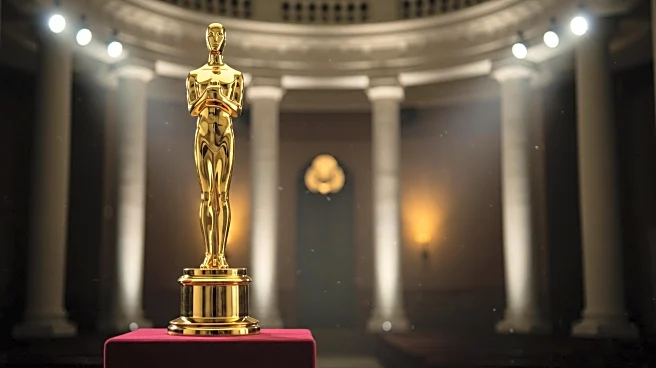What's Happening?
President Trump has announced the five artists who will receive Kennedy Center Honors in December: Michael Crawford, Gloria Gaynor, KISS, Sylvester Stallone, and George Strait. During a press conference, President Trump stated he was '98% involved' in the selection process and will host the televised ceremony honoring these artists. The public is invited to vote for their favorite songs associated with each honoree. Options include Crawford's 'The Music of the Night' and 'The Phantom of the Opera,' Gaynor's 'Never Can Say Goodbye' and 'I Will Survive,' KISS's 'Rock and Roll All Nite' and 'Beth,' Stallone's 'Gonna Fly Now' and 'Eye of the Tiger,' and Strait's 'Amarillo by Morning' and 'Check Yes or No.'
Why It's Important?
The Kennedy Center Honors are a prestigious recognition of lifetime contributions to American culture through the performing arts. President Trump's involvement in the selection process may introduce a partisan perspective to the event, potentially influencing public perception. The inclusion of artists from diverse genres, such as rock, disco, and country, highlights the broad spectrum of American music and film. This event not only celebrates artistic achievements but also engages the public in cultural discourse through the voting process, fostering a sense of participation and appreciation for the arts.
What's Next?
The televised ceremony, hosted by President Trump, will take place in December, where the honorees will be celebrated. The public voting on favorite songs will likely generate interest and engagement, potentially influencing the ceremony's programming and performances. Stakeholders, including fans and industry professionals, may react to the selections and the involvement of President Trump, possibly sparking discussions on the intersection of politics and arts. The event may also impact the honorees' visibility and legacy, as their contributions are highlighted on a national platform.
Beyond the Headlines
The Kennedy Center Honors traditionally focus on artistic merit and cultural impact, but President Trump's involvement may shift the narrative towards political influence in cultural events. This development raises questions about the role of political figures in arts recognition and the potential implications for future honors. The public voting aspect introduces a democratic element to the process, allowing fans to express their preferences and potentially shape the ceremony's focus. This interaction between politics, public opinion, and cultural celebration may set a precedent for future events.









